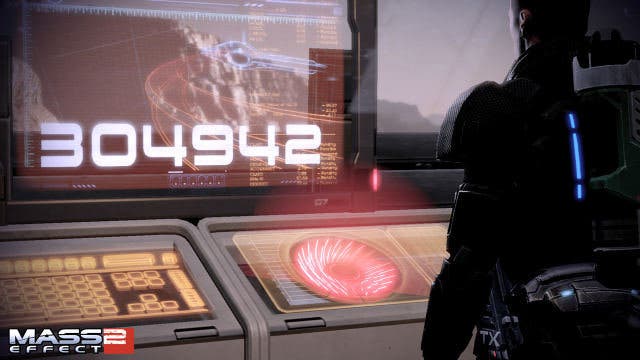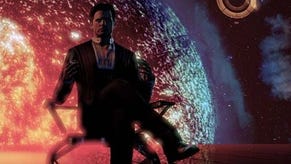Mass Effect 2: Arrival
Don't fear the Reapers.
This DLC takes all that away, for no good reason, and leaves you clumsily exposed as a result. As the firefights thunder past, your enforced solitary status feels more and more like a technical contrivance to reduce the amount of voice work required rather than a narrative necessity.
These mechanical shortcomings are problematic, but pale alongside the way Arrival purposefully goes out of its way to avoid, and even undermine, the things that made Mass Effect 2 so thrillingly brilliant.
I counted a grand total of four conversations during my hour-and-a-bit Arrival experience. None of them lead the plot down different avenues, and none of them are able to breathe life into the stale storyline.
Worse still is the way the DLC handles the question of moral choice. This is a concept at the very heart of everything BioWare does these days. Did you save the Council? Did you hand Reaper technology over to Cerberus? More than any battle, it's these moments which truly matter and define your character's role in the world.
Arrival commits the cardinal sin of including an absolutely massive ethical conundrum, even overtly presenting it as an "Are you sure you want to do this?" question and then – right when you're mulling it over – makes Shepard's decision for you with a cut-scene. There was never a choice after all.
It's an outrageous piece of narrative chicanery from a developer that has succeeded in no small part by placing such pivotal choices in the hands of the player, and forcing us to live with the consequences. Arrival throws that out of the window in the bluntest fashion possible.
Without wishing to spoil anything the decision you're asked to make is the sort of quandary that makes Mass Effect work, where every player will have their own feelings as to how their Shepard will respond. But BioWare seizes control right when it's needed most, just because it's written itself into a corner and can't change the ending.

From that moment on, my disappointment with Arrival's mediocre staging curdled into something more personal. Trudging through rote combat is one thing. Forcing unpleasant decisions on my Shepard without permission feels uncomfortably like a betrayal of trust.
It's not even as if it all this narrative strong arming builds to a suitable climax. Much like Witch Hunt for Dragon Age: Origins, Arrival's core concept promises high drama but fails to deliver, doing little to advance the over-arcing story or to set the scene for future events.
It merely dangles an arbitrary countdown in front of you, and then finishes with a revelation of something that we all knew anyway: that the Reapers are coming. You finish right where you started, no wiser than you were before - which is the kiss of death for storytelling.
Throughout, it's hard not to see the ways this could have been made so much better. For all its controversy DLC is perfect for games like this, offering the chance to really capitalise on our organically evolving emotional investment with a sprawling fictional universe and its inhabitants; to provide a poignant bridge between one story and the next, an epilogue for adventures past and a promise of things to come.
Instead we get this perfunctory morsel, where the narrative treads water as the action goes in circles. With his final act looming, Shepard deserved better.












